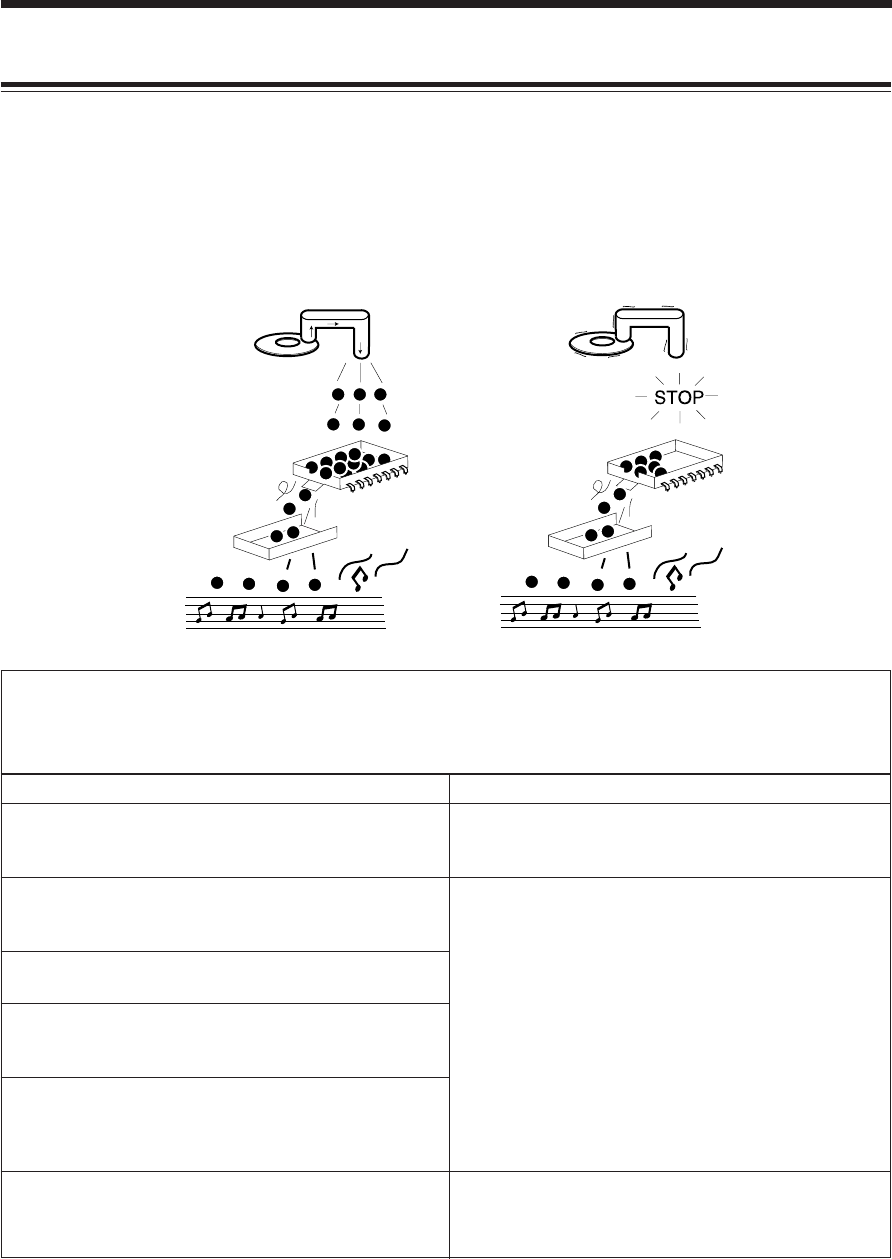
– 57 –
Sound Skip Guard Memory
The biggest weakness of discs is their susceptibility to vibration. The “Sound Skip Guard Memory” has been developed to
cope with this weakness.
With this function, a few seconds of signals read by the optical read head from the MD are first stored in memory before
being reproduced as audio signals. Thus, even when vibration or shock interrupts signals being read, these stored signals
can continue to reproduce sounds for the few seconds. Thus, the user will enjoy uninterrupted music.
When “vibrated”....
Normally....
Symptoms
“DISC FULL” appears, even though there is still enough
remaining time on an MD.
“DISC FULL” appears, even though the number of tracks
and recording time do not reach the limit.
The JOIN function sometimes does not work.
The remaining time on the MD does not increase even
when tracks are erased.
The sound drops out during fast forward or fast reverse.
The amount of recorded time on the MD added to the
amount of remaining time is shorter than the MD’s total
possible recording time.
Cause
There is a maximum number of tracks which can be
recorded, regardless of recording time. More than 254
tracks cannot be recorded on an MD.
• Repeating erasure and recording on the same MD creates
many blank portions sparsely on the MD. When record-
ing on such an MD, a track is recorded on these blank
portions sparsely. If a track is divided and recorded into
so many portions, “DISC FULL” appears.
• If a divided portion of less than 8 seconds is made while
a track is recorded on the MD, that track cannot be
joined to another track using the JOIN function. Further-
more, if that track is erased, the remaining time of the
MD may not increase exactly by the erased amount.
• If a track has been divided into many portions while
being recorded on the MD, sounds will drop out while
fast forwarding or reversing such an MD.
You cannot record on a blank portion of less than 2 seconds
in the MD. For this reason, the actual recording time of
discs may become shorter.
MD limitations
The MD records data in an original format that differs from that of conventional cassette tapes or DATs. Since there are
some limitations with this recording format, the following types of symptoms may occur. These symptoms are not
malfunctions.
EN55-60.CA-MXS5RMD[B]/f 99.9.14, 1:55 AM57


















